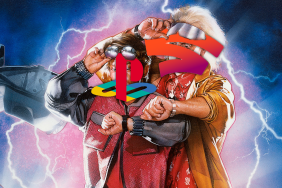Following closely on the heels of Pennsylvania’s proposed “sin tax” on Mature-rated video games, Georgia lawmakers are floating a tax on streaming service subscriptions and digital purchases (including video games, ebooks, music, and video content). The idea is to add a 4% tax to these purchases and subscriptions in order to subsidize new internet lines to “economically depressed parts of the state” that don’t currently have the same kind of access that everyone else does.
Chairman of the House Rules Committee and State Rep. Jay Powell (R) says that there is an inequality between old and new technologies, and while customers have to pay products on physical goods, they have escaped having to pay any additional taxes on digital purchases and subscriptions. Lawmakers say that the prosperity of the urban areas of the state needs to be spread around fairly.
The majority of Georgians oppose the tax increase, with 66% of respondents in a statewide poll saying they were against it. Numerous lawmakers also oppose the idea of increasing taxes. One Georgian retiree argues that the cost of living is already higher in metro areas of the state, and that those who moved to rural areas because it was cheaper should bear the burden of the taxes and fees that build the lines going out to them.
Georgia currently taxes products that are sold online, something that went into effect on January 1, 2019, but digital goods and services are still untaxed by the state. State Sen. Steve Gooch wants to do what he can to expand rural internet options, but he’s not sure that additional taxes are the right way. He’s convinced that the state can find money in other places, like a fund that was set up for landline phone expansion, before turning to additional taxes on services and digital products. “We should exhaust all options and review our existing tax framework for internet, telephone, broadband and satellite services before making any decisions.”
John Buhl, a spokesman for the Tax Foundation, a Washington-based think tank, says that if states don’t deal with changing technology quickly, the tax base will start to shrink. “People think of Netflix, and they like Netflix, and they say, ‘Why are you trying to tax my Netflix?’ ” Buhl said. “Things that were goods in the past are now services in the digital era, and states need to deal with that. Otherwise, their tax base will get smaller quickly.” Some states, including Hawaii, Pennsylvania, and Washington, already tax streaming services.
By current estimates, the tax could generate $48 million by 2021 and get to $310 million by 2024, but there’s no guarantee that money would make it to the intended rural internet development and expansion. Revenue from the tax would be split between the state and local governments. The state’s portion of the money would go into the general treasury, not a special fund. Without an amendment to Georgia’s constitution, the state can’t put any money towards specific issues. While not yet an official bill, one is on the way.
This isn’t the first time gamers would have to deal with a tax on their hobby. The amusement tax in Chicago is still impacting a lot of people causing game prices to be higher for those that live there. Rhode Island also introduced a bill last year to tax M-rated games.








